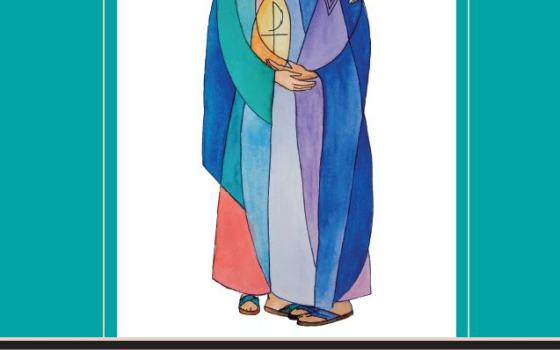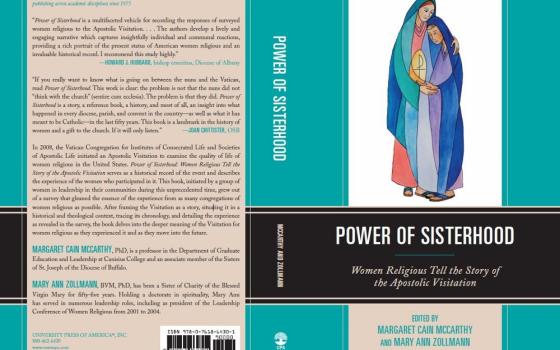Earlier this year stories were circulating that the long-awaited final report on the Apostolic Visitation of U.S. women religious would be released prior to the Year for Consecrated Life, which begins on Nov. 30, the first Sunday of Advent.
Now women religious themselves are giving their own perspective on the experience. Power of Sisterhood: Women Religious Tell the Story of the Apostolic Visitation has just been published by University Press of America. The timing seems fortuitous, perhaps providential. Edited by Margaret Cain McCarthy, Ph.D., and Mary Ann Zollmann, Ph.D., a Sister of Charity of the Blessed Virgin Mary, the book was initiated by a group of women religious who were the elected leaders of their communities during the Apostolic Visitation. With the assistance of McCarthy, they designed and conducted a qualitative and quantitative survey of presidents or major superiors whose communities had undergone the visitation.
Most readers are aware that in 2008, Cardinal Franc Rodé, then prefect of the Vatican’s Congregation for Institutes of Consecrated Life and Societies of Apostolic Life (CICLSAL) initiated an Apostolic Visitation of the institutes of women religious in the U. S. “to examine their quality of life.” Mother Mary Clare Millea, who was appointed to conduct the visitation, submitted her report to CICLSAL in January 2012, the content of which has not been revealed.
Power of Sisterhood explains what an apostolic visitation is, examines the historical and theological context of the Apostolic Visitation, and traces its chronology. After setting out the methodology of the survey and an analysis of the responses, the deeper meaning of the visitation experience is explored. For example, Saint Joseph Sister Marcia Allen reflects on the solidarity that developed, School Sister of Notre Dame Addie Lorraine Walker offers a theological reflection, Loretto Sisters Donna Day and Cathy Mueller develop some of the themes that emerged from the survey, and Zollmann probes the significance using the biblical story of Mary’s visitation with Elizabeth.
I was president of my own community at the time of the Apostolic Visitation and participated in the authors’ survey. I am looking forward to reading Power of Sisterhood and the reflections of my sisters on an experience that had some surprising outcomes.
As Allen wrote, ““The Apostolic Visitation is not something any congregation of women religious is eager to live twice; however, there’s a side to this story that bears repeating not just once but many times. It is the story of solidarity, of how thousands of sisters came together in their communities and across communities; the story of how their associates and coworkers came together around them and with them; the story of how family, friends, and veritable strangers all created a network of communication that held together through the months of uncertainty, creating a new reality of support and inspiration.”
Of all that has been written, and will be, about the Apostolic Visitation, this book offers a unique perspective – that of women who led their communities through it. They are telling the story.
[Jan Cebula, OSF, is liaison to women religious in the United States for Global Sisters Report.]

